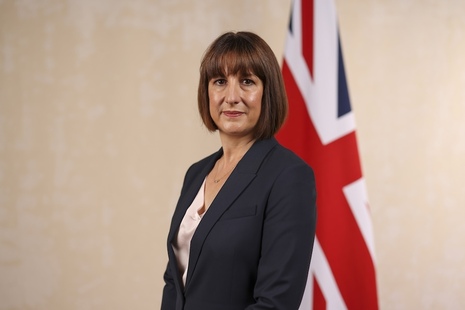
Budget 2024: higher employment costs but no additional support for nurseries
Today the Chancellor delivered the first budget by a Labour government in 14 years announcing that it will raise taxes by £40bn.
Rachel Reeves, the UK’s first female chancellor said: “We must restore economic credibility and protect working people”.
Living up to Labour’s manifesto promises there were no increases to income tax, National Insurance (NI) or VAT, but Employer’s NI contributions were confirmed.

The Chancellor announced that she will be raising employer’s NI contributions from 13.8% to 15%. In addition, Rachel Reeves announced that the threshold at which employers start paying employees NI contributions would be lowered from £9,100 to £5,000. Announcing that this will raise £25bn she said: “I know that this is a difficult choice, I do not take this decision lightly.”
During her Autumn statement, Rachel Reeves did not make any specific announcements regarding the early years. There were no mention of business rates relief for nurseries but 40% relief was announced for retail, hospitality and leisure businesses.
Purnima Tanuku OBE, Chief Executive of National Day Nurseries Association (NDNA) said: “It’s disappointing that the Chancellor who said she wanted every child to have the best start in life failed to announce any support for early education and care providers.
“As nurseries and other providers are gearing up to the final phase of the childcare expansion next year, they will have to pay much larger wage bills and higher National Insurance Contributions. We need these uplifts to be built into next year’s childcare funding rates. As the Government will be paying for 80% of childcare hours in England, the amount it pays is fundamental to the sustainability of the sector.
“Despite our ongoing campaigning, the Chancellor announced no business rates relief for nurseries who care for and educate our youngest children day in day out. Instead, pubs, restaurants and gyms will benefit from a 40% rates relief with the promise of a lower rate permanently following a review. Nurseries pay an average of £21,000 in business rates, money which could be invested in training and quality for our children.
“The Government will boost funding to schools, further education and special educational needs provision but with no mention of additional investment in early education places. Early years practitioners are best placed to identify children’s developmental needs so investment for support for those with additional needs must be made at the earlier opportunity, not left until school or beyond.
“We need to know that the Government will be fully supporting the early years sector to expand so they are able to meet demand for places for the final phase of the childcare expansion next year.”
Earlier this week the Chancellor announced that education spending would be prioritised in this week’s Budget including the £1.8bn already announced for the early years expansion as “protected”.
The Chancellor confirmed VAT on private school fees saying that “94% of children in the country attend state schools.” This change will take effect from January 2025 and from April 2025 the government will introduce legislation to remove business rates relief on private schools.
The Chancellor focused her attention on education as a whole confirming:
- Investment into breakfast clubs will be tripled
- A £2.3bn increase to the core school’s budget to ensure hiring of teachers into key subjects.
- An additional £6.7bn to the DfE in 2025 including over £1.4bn to rebuild 500 schools
- An additional £300m for further education
- A £1bn increase for funding special educational needs (SEN)
Announcing additional funding for SEN, the Chancellor said she wanted to “improve outcomes for our most vulnerable children.” This announcement comes days after a National Audit Office report looking into the money spent to support children with special educational needs concluded that children’s outcomes have not improved.
The Chancellor announced that devolved governments will receive the largest ever settlements under the Barnett formula: £3.4bn for Scottish Government; 1.7bn for Welsh Government.
The next Spending Review will look at budgets up to 2026 with the next phase taking place late spring with departmental spending set to grow by 1.7% in real terms. NDNA has submitted evidence for investment in early years sector.
The independent watchdog, the Office for Budget Responsibility, also publishes an assessment of whether policies are on course to deliver the economic impact that the Government intends. In their economic and fiscal outlook they said,
“Although the first phase of the policy announced in March 2023 to offer 30 hours a week of free childcare for working parents has concluded successfully and rollout remains on track, we continue to closely monitor the delivery of the policy, as, looking ahead, there is a risk of a shortfall in the supply of funded places and staff for the September 2025 expansion, which will be the largest one yet.”
“And, so far, almost none of the extra take-up that we had assumed as a result of the March 2023 addressing upfront childcare costs in universal credit measure has materialised since its implementation.”
NDNA will continue working for a comprehensive and properly resourced workforce strategy to support the sector recruit and retain the staff needed to meet the demand for early education and care places that maintain high-quality provision.
Similar Articles
Nursery: Where the Best Start Happens - NDNA’s new campaign championing PVI nurseries

Millie’s Mark launches new and improved website


